IMO Provides Interim Guidance on Biofuels in Relation to CII
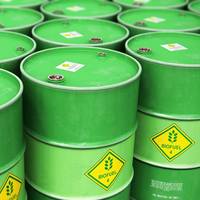
The 80th session of the IMO’s Marine Environment Protection Committee (MEPC 80), held in July 2023, has approved the interim guidance on the use of biofuels.This is in relation to assigning CO2 Emission Conversion Factor (Cf) under the Carbon Intensity Indicator (CII) regulations and when reporting fuel consumption to the IMO Data Collection System (IMO DCS).Flag States are encouraged to apply the interim guidance on use of biofuels under regulations 26, 27 and 28 of MARPOL Annex…
MEPC 80: Action Taken on Range of Environmental Regulations
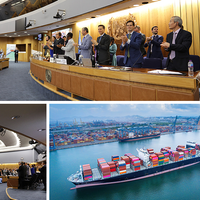
The IMO’s MEPC 80 session adopted the 2023 IMO Strategy on Reduction of GHG Emissions from Ships and advanced other environmental initiatives.The revised IMO GHG Strategy includes an enhanced common ambition to reach net-zero GHG emissions from international shipping close to 2050, a commitment to ensure an uptake of alternative zero and near-zero GHG fuels by 2030, as well as indicative check-points for 2030 and 2040:1. to reduce the total annual GHG emissions from international shipping by at least 20%, striving for 30%, by 2030, compared to 2008; and2.
IMO to Review GHG Strategy and More at MEPC 80
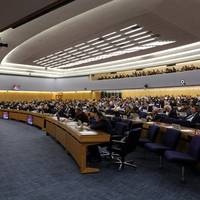
The IMO’s Marine Environment Protection Committee (MEPC) - 80th session will meet at IMO Headquarters in London from July 3-7, and amongst key agenda items, the MEPC 80 session is expected to adopt an upgraded IMO greenhouse gas strategy.The revised IMO GHG Strategy will contain concrete greenhouse gas reduction targets for the sector and is expected to outline a range of technical and economic measures. Negotiations have been ongoing and will continue during the Intersessional Working Group on Reduction of GHG Emissions from Ships (ISWG-GHG 15)…
IBIA Wants IMO to Improve New Flashpoint Regulations
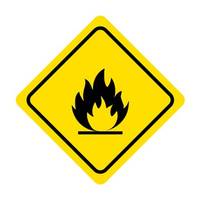
The International Bunker Industry Association (IBIA) has submitted proposals to the Maritime Safety Committee (MSC 107) which will be meeting later this week in a bid to improve understanding and workability of new flashpoint regulations for fuel oil.MSC 107 will meet from 31 May to 9 June and will continue discussion on an agenda item for the development of further measures to enhance the safety of ships relating to the use of fuel oil. In essence, the aim is to introduce increased control on the supply of bunker fuels.
ZeroNorth and Vitol Team Up on Emissions Reporting
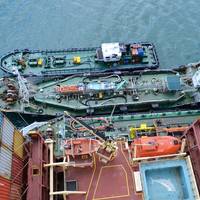
Technology company ZeroNorth has signed a long-term strategic partnership with energy and commodity company Vitol.The deal will see Vitol gain full access to the ZeroNorth platform, and ZeroNorth customers will in turn gain access to Vitol’s carbon reduction solutions and bunkering services through subsidiary Vitol Bunkers.Vitol will use the ZeroNorth platform to optimise operations in a number of key business areas, including voyage, vessel, bunker and emissions optimisation…
OPINION: Regulating Grey Water ... the Time is Now
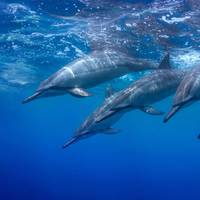
The IMO’s MARPOL Annex IV is being revised to confirm the lifetime performance of Sewage Treatment Plants (STPs). This may finally bring about grey water regulation – a necessity that is long overdue.Black Water and Grey WaterA ship’s sewage (black water) is collected from toilets, urinals and hospitals. The IMO’s MARPOL Annex IV prohibits its discharge, except when treated by an STP or discharged at > 12nm from the nearest land. A ship’s grey water, collected from showers, wash basins…
Wilhelmsen, Hitachi Deliver XRF Analyzers
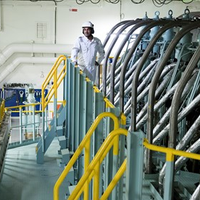
Signing a supply agreement with Hitachi High-Tech Analytical Science (Hitachi High-Tech), Wilhelmsen will supply Hitachi High-Tech’s industry-leading handheld XRF analyzers to the maritime market, enabling vessel crews to accurately and efficiently test the sulphur content of their fuel, on the spot.With the International Maritime Organization’s 0.50% global sulphur cap on marine fuels set to come into force on January 1, 2020 and discussions on enforcement strategies and potential penalties for non-compliance gathering pace…
Bunker Delivery Note Amendments Enter into Force
Amendments to the bunker delivery note relating to the supply of marine fuel oil to ships which have fitted alternative mechanisms to address sulphur emission requirements entered into force on 1 January 2019.According to a press release from International Maritime Organization (IMO), the amendment enters into force as the shipping industry counts down to 1 January 2020, when the limit for sulphur in fuel oil will be reduced to 0.50% m/m outside emission control areas (ECAs), from 3.5% currently.The new limit under IMO's MARPOL treaty will have significant benefits for the environment and human health.In ECAS, the limit will remain at…
Mass Flow Meters Will Now Be Mandatory in Singapore
As a top bunkering port, Singapore will, from 1 January 2017, implement the mandatory use of the Mass Flow Metering (MFM) system which involve devices installed on all bunker vessels licensed by the Maritime and Port Authority of Singapore (MPA) to deliver Marine Fuel Oil (MFO) to vessels bunkering within the Singapore port waters. The automated MFM system is meant to dispense with conventional sounding of the MFO in bunker tanks as the quantity of oil transferred from the bunker vessel to the receiving vessel will be automatically measured by the MFM device as the oil passes through the device. At the completion of bunkering the device will issue a printed Bunker Metering Ticket (BMT) showing the delivered quantity as witnessed by the bunker vessel's cargo officer…
Bomin Launches Physical Operation in Mauritius
Physical supplier and trader of marine fuel oil the Bomin Group is launching a physical operation in Port Louis, Mauritius, effective from July 12, 2016. Bomin (Mauritius) Ltd. will utilize the 2008-build, double-hulled bunker barge MT Hakkasan to provide customers with products, including IFO 180cst, as well as MGO. All deliveries will be provided under a Bomin specific Bunker Delivery Note (BDN). “Port Louis is the only official port of entry and exit for sea vessels in Mauritius, and it is critical that we have a strong physical presence here to support our customers and our global network,” said Jan Christensen, Global Head of Bunker Operations, Bomin Group.
DNV GL, VPS Launch Fuel Analytics Tool
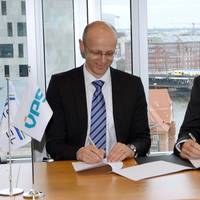
Veritas Petroleum Services (VPS) and DNV GL have launched a new Fuel Analytics solution. As part of DNV GL’s ECO Insight fleet performance management portal, the tool will enable a systematic assessment of the impact of fuel quality on vessel performance. The Fuel Analytics solution is the result of an ongoing close cooperation between VPS and DNV GL. “We have been the largest fuel testing services provider since our inception in 1981,” said Gerard Rohaan, CEO of VPS. “And as a result we have the world’s largest fuel sampling database – over two million tested samples.
IBIA Welcomes MEPC Bunker Compromise
The compromise solution on the issue of ensuring bunker quality agreed at the 67th meeting of the IMO’s Marine Environment Protection Committee (MEPC 67) has been welcomed by the International Bunker Industry Association (IBIA). Submissions by IBIA addressing sulphur compliance issues and quality control had called for a series of practical measures including a licensing scheme and for the Bunker Delivery Note (BDN) to be a more useful document containing information on the specification of fuel ordered. Although these proposals were not implemented, MEPC 67 agreed to establish a correspondence group to develop draft guidance for assuring the quality of fuel oil delivered for use on board ships…
ICS Calls for Harmonized ECA Inspections

The International Chamber of Shipping (ICS) is encouraging the Paris Memorandum of Understanding on Port State Control to ensure that a harmonized approach to PSC inspections has been developed in advance of the January 1, 2015 deadline with respect to the implementation of the 0.1% Sulphur Emission Control Areas (ECAs), established in accordance with MARPOL Annex VI. ICS has underlined the shipping industry’s commitment to full compliance with the IMO sulphur ECA requirements from January 2015.
BIMCO Making Strides on Standard Bunker Contract Revision
BIMCO says that its sub-committee of purchasers and suppliers tasked with revising BIMCO’s standard bunker contract met again recently at BIMCO House to review comments received from the Documentary Committee and the Singapore Shipping Association (SSA). BIMCO explains that it met the SSA earlier this year to explain the purpose of the revision to develop a bunker purchase contract that would gain global acceptance. Since that meeting, the SSA has formed a committee to examine the contract and their first meeting generated valuable comments and suggestions on the latest draft. BIMCO is represented on the SSA committee by Mr. Y K Chan…
OW Bunker Reduces Global Claims to 0.9%

Internal quality standard helps company meet global target of reducing claims to below 1% and set new industry benchmark for best practice. OW Bunker has announced that it has reduced global claims1 on physical products to 0.9% for Q1 2014. This is down from an average of 1.6% in 2013. The company set a target of reducing global claims to below 1% when it introduced its own Global Quality Standard (GQS) at the end of 2012 to ensure the quality of products supplied by its physical operations on a global basis.
North American ECA – Today
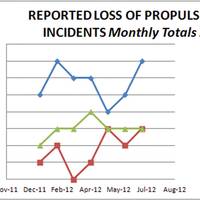
On August 1, 2012, the North American Emissions Control Area (NAECA) took effect, mandating the use of 1.0% sulfur Heavy Fuel Oil (HFO) or residual fuel oil for ships within 200 miles of the continent of North America. California has mandated the use of distillate fuel when ships are within 24 miles of its coastline since July 1, 2009. Lessons learned from California’s experience with distillate fuels may benefit operators as the next phase of NAECA comes into effect (January 1…
Warnings of Off Spec Fuel Deliveries at Riga
Fuel testing agency Lintec Testing Services has warned that three fuel oil samples taken recently from vessels that have bunkered in Riga, Latvia, have shown the presence of Dicyclopentadiene (DCPD), a synthetic substance not naturally occurring within marine fuel. Lintec Managing Director Geoff Jones said, “The presence of DCPD was detected by Lintec’s chemical screening service. This fuel is clearly in breach of Section 5.1 of the ISO-8217 specification, which clearly states that ‘the fuels should be homogeneous blends of hydrocarbons derived from petroleum refining. This shall not preclude the incorporation of small amounts of additives intended to improve some aspects of performance. The fuels shall be free from inorganic acids and from used lubricating oils.
IBIA Calls on Industry to Comply
meeting the specific technical requirements laid out in the legislation. the maximum sulphur content in bunker fuel. indeed if we hear reports of fuel exceeding that very conservative limit". bunker fuel. note specifying density, viscosity and sulphur content. present these at a future port state control inspection. compliance with the requirements," says Gregory. form of sulphur emission control areas (SECAs). active in the North Sea on May 19th 2007. have agreed to enforce the legislation. and taking an approved bunker sample. years after the date of the bunker stem. signatories to Annex VI.
Bunker Buyers Should Revise Specs to Comply
warns fuel testing agency, Lintec Testing Services. Almost all bunker buyers specify that their fuel must comply with ISO 8217. covered by the standard. specifications. must comply with ISO 8217 AND with Marpol Annex VI. bunker delivery note specifying sulphur content, density and viscosity. "A new updated ISO 8217 standard should be ready by the end of 2005. Hopefully it will include Annex VI requirements. should make sure they are getting the right fuel. that is to specify it.
IMO: Guidelines for Port State Control
The IMO issued a Circular forwarding guidance for port state control (PSC) under MARPOL Annex VI (air emissions). The goal is to provide international consistency in the conduct of PSC inspections, recognition of deficiencies, and application of control measures. Detainable deficiencies are identified as: (1) absence of a valid International Air Pollution Prevention (IAPP) Certificate or its equivalent; (2) a diesel engine with a power output of more than 130 kW installed or converted on or after 1 January 2000 that does not comply with the NOx Technical Code; (3) the sulphur content of any fuel being used on board exceeds 4.5% m/m; (4) non-compliance with relevant requirements while operating within a SOx emission control area…





